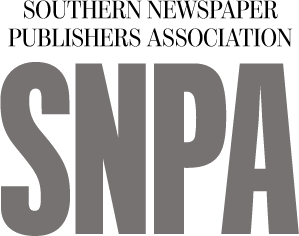NLRB to revisit employee use of employer email
On Aug. 1, the National Labor Relations Board invited interested parties to file briefs on whether the board should adhere to, modify or overrule Purple Communications – a case (decided by the Obama Board) that held employees who had been given access to their employer's email system for work-related purposes have a presumptive right to use that system, on non-working time, for communications protected by Section 7 of the National Labor Relations Act (union organizing activity). Purple Communications overruled the 2007 Register-Guard case which had held, recognizing the private property interests of employers, that employers could have rules regarding email use that could prevent employees from using the email system for union-related and organizing purposes.
While Purple Communications and Register-Guard addressed email systems, the board is also inviting comment on the standards that should apply to evaluate policies governing the use of employer-owned computer resources other than email. Any briefs must be submitted on or before Oct. 5. Board members Pearce and McFerran (pro-union) dissented from the majority decision to invite briefing to reconsider Purple Communications.
Note: The Zinser Law Firm, P.C. represented the Register-Guard in the 2007 landmark email decision.
Dishonesty is cause for discharge
The United States Court of Appeals for the District of Columbia Circuit has reversed the National Labor Relations Board and ruled that the employer lawfully fired a union activist for lying during an investigation. Finding no substantial evidence to support the NLRB's decision, the court strongly rebuked the board when it said, "It is rare that we reject a Labor Board finding based simply on a lack of substantial evidence. This is such a case."
One employee had a falling out with her supervisor. That employee then sought advice from union activist and co-worker Cunningham. The employee claimed that Cunningham advised her to go ahead and leave and that Cunningham said that HR had given her permission to leave. It is undisputed that the employee clocked out without permission from anyone in management.
The company then commenced an investigation. During the investigation, Cunningham denied that she had told the employee to go home and denied that HR had given her permission. Thus, Cunningham was contradicting the account of the employee. Both the employee and Cunningham refused to share text messages they traded. The employer decided to believe Cunningham that the employee investigated lied and decided to fire her.
When Cunningham learned of the employee's imminent discharge for dishonesty, Cunningham decided to reveal her text messages to the company. The text messages revealed that Cunningham lied and that the employee's account was true. Ultimately, the company decided to fire Cunningham for lying during the investigation which was a violation of company rules.
The court found that there was no evidence of anti-union motive. While a supervisor had said to Cunningham there was a "hit list," he specifically testified that the list "wasn't union or non-union." Plus, this supervisor was not involved in the decision to discharge Cunningham. The court said this was not evidence of an anti-union motive to fire Cunningham. The reason was "dishonesty."
The court also rejected the board's finding that the length of the investigation somehow evidenced an anti-union motive. The length of the investigation was due to the fact that when Cunningham finally revealed her text messages, it changed the focus of the investigation from the other employee and onto Cunningham.
The court also reviewed evidence that eight other employees had been fired for dishonesty during investigations. The court took the NLRB to task for ignoring that evidence. Instead of recognizing the employer consistently discharged people for dishonesty, the board engaged in after-the-fact second guessing of management.
The court stated, "Here the ALJ is unabashedly taking on the company's business judgment chair and that has been repeatedly held to be improper."
Finally the court found no unlawful motive with the employee's investigation. "Here there could be no question that the company was entitled to inquire into the reason an employee walked off the job without management permission. There was no indication here that the employer was doing any more than conducting a valid inquiry."
NLRB fails to meet burden of proof
The United States Court of Appeals for the Eighth Circuit has refused to enforce an order of the NLRB in a discharge case.
The employee was fired for visiting personal websites when he should have been working and for his habit of sleeping on the job. Approximately nine months before the discharge, the employee had been active in the unionization of the employer and had served as the observer for the union in the election. The NLRB ruled that his discharge was unlawful.
The employer argued that the NLRB did not prove there was a connection or nexus to the employee's union activity nine months earlier and his discharge. The board decision stated that there is no "nexus element" in the NLRB's burden of proof.
The court disagreed. The court ruled that the NLRB General Counsel must prove a connection or nexus between the animus and the firing – that the discriminatory animus toward the employee was a substantial or motivating factor in the decision to fire him. General hostility toward a union does not itself supply the element of unlawful motive. The court remanded the discharge decision back to the board to apply the proper standard.
The court also ruled that the employer did not commit an unfair labor practice when it interviewed an employee in preparation for its defense before the National Labor Relations Board. The court found the questioning was not coercive and protected by the constitutional right to freedom of speech.
Spanish document not consistent with English version
The California Court of Appeal recently refused to compel arbitration where an employer issued different and conflicting English and Spanish versions of an arbitration agreement. Applying a traditional interpretation rule that ambiguous contract language is construed against the drafter, the court found that the more employee-friendly version (the Spanish version) applied and upheld the denial of the employer's motion to compel arbitration.
This case provides constructive advice to all employers who may issue policies in different languages or when signing independent contractor agreements, provides a foreign language translation. When issuing policies or agreements in multiple languages, this writer strongly recommends that the translation be performed by a college professor or professional translator and that the translation be reviewed carefully by human resources and counsel.

L. Michael Zinser is the founding partner of The Zinser Law Firm in Nashville, Tenn. The firm, which has a heavy concentration of clients in communications media, represents management in the area of labor and employment. Zinser can be reached at (615) 244-9700 or mzinser@zinserlaw.com.






